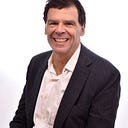The firebombing of Tokyo on March 9, 1945 killed more than the atomic bombing of Hiroshima. If the atomic bombings were wrong, then all US bombings of Japan were war crimes. If you make that argument, you're arguing for an invasion of Japan to end its genocidal East Asian rampage that killed tens of millions. From https://www.newyorker.com/magazine/1995/07/31/did-the-bomb-end-the-war you can read about the Japanese war cabinet meeting the morning of August 9 in which one minister posed the question, "maybe they have only one", at which point a messenger came in with the news of the Nagasaki bombing, tipping the balance of the meeting toward surrender. That, and the news of the Soviet invasion of Manchuria and Sakhalin, gave Hirohito political cover to "endure the unendurable".
Try looking up this article before flippantly condemning the atomic bombings:
https://www.wilsoncenter.org/article/did-hiroshima-save-japan-soviet-occupation
Stalin had planned to seize a major Japanese island. When Truman refused, Stalin blinked. Why?
BY SERGEY RADCHENKO
Herbert Bix's Pulitzer prize winning biography of Hirohito makes this clear as well.
The Japanese war cabinet didn't view the atomic bombings as fundamentally different from conventional bombings in their total indifference to Japanese civilian casualties. They were worried primarily about future war crimes trials and their careers.
Death rate in Japanese-occupied China: 3000/day. Cost of prolonging the war by 90 days: 270000.
Death rate of POWs in Japan: 27% and climbing rapidly in the spring and summer of 1945.
10000: the number of planes the Japanese still had in August 1945.
2.5m: Number of Japanese troops in China at war's end.
2-4m: Number of Indonesians who died from planned starvation by Japanese occupiers. Daily death rate: about 2140. Cost of a 90 delay in Japan's surrender: about 190000.
Imagine the Cuban missile crisis in 1962 with no previous use of an atomic bomb as a vaccination mark. You exponentially raise the probabaility of a nuclear war instead of the outcome than what we got from the US-Soviet staredown contest, especially when you add the ingredient of a Japan divided as Germany was by a Soviet invasion of Hokkaido.
Why the Japanese almost never talk about Nagasaki and prefer Hiroshima only victimhood: Nagasaki had the largest Christian population in Japan, 50000 Korean slave laborers. It was a gaijin city compared to Hiroshima.
As usual, it was a choice between bad vs worse. Good wasn't on the menu. It was a classic trolley flip the switch problem, not the fat man on the bridge problem. https://en.wikipedia.org/wiki/Trolley_problem
If you don't have time for Bix, Ian Buruma's The Wages of Guilt: Memories of War in Germany and Japan or Japan at War: An Oral History (https://www.amazon.com/Japan-at-War-Oral-History/dp/1565840399), try reading here: https://atomicarchive.com/
In making moral judgements there is no substitute for knowledge acquired by scholarly effort and facts.
